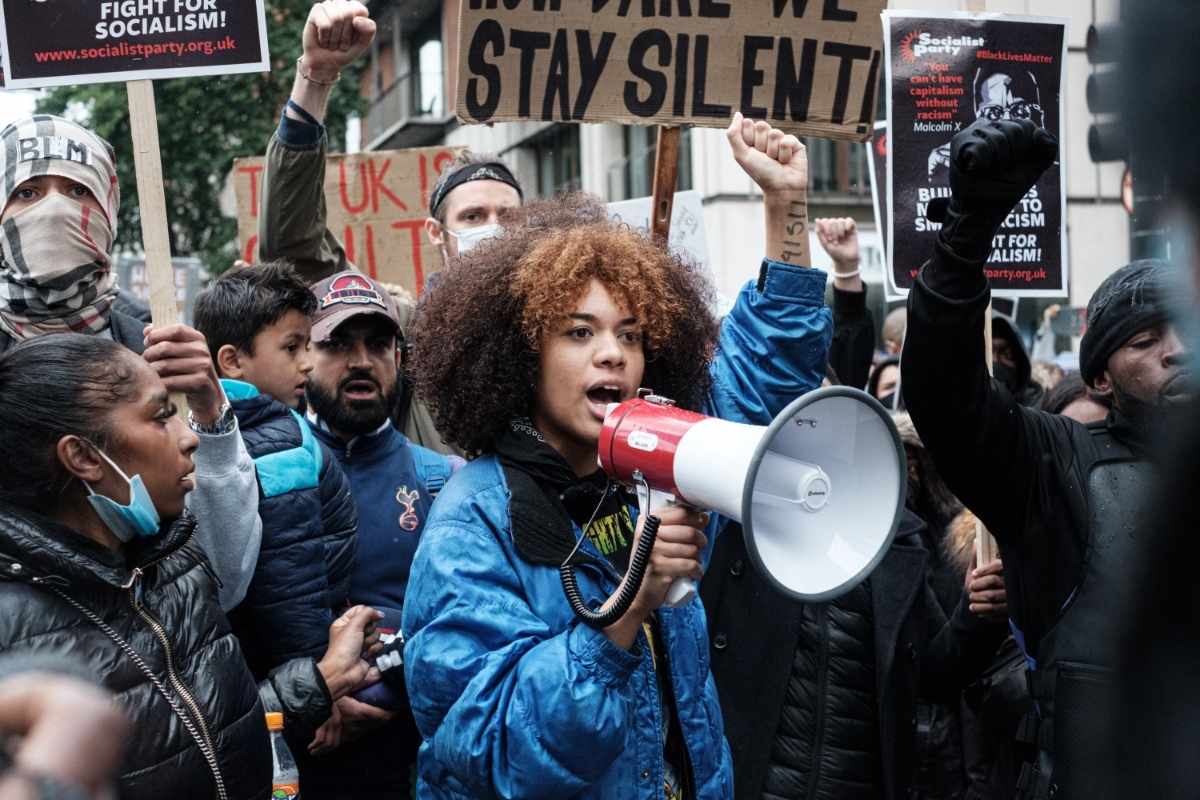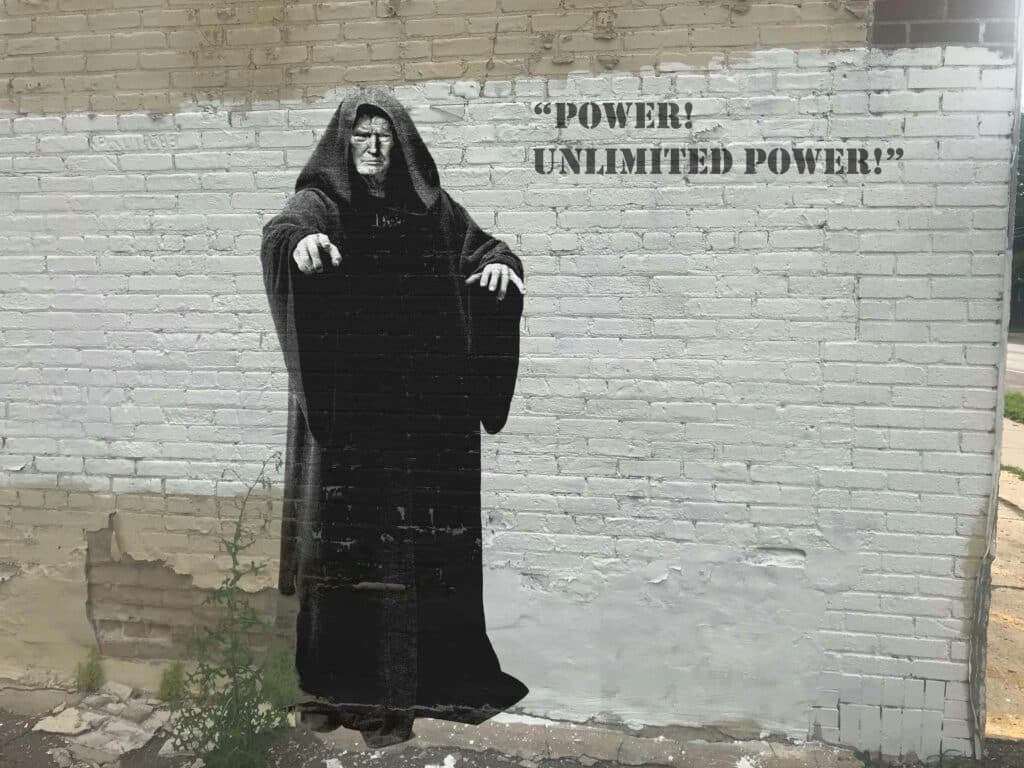Why Sacred Activism Is Inner Work With Rachel Ricketts

Here are the key takeaways from my interview with Racial Justice Advocate, Lawyer, Writer, and Anti-Racism Educator Rachel Ricketts. We discuss sacred activism, systemic racism, privilege, and how our disconnection as women serves white supremacy.
What Is Sacred Activism?
Sacred Activism is taking a heart-centered, resilient approach to unpacking privilege, systemic racism, and racial injustice. For women of color, it’s all about self-care, getting support, and dismantling internalized oppression. For white women, we must look at our own roles in perpetuating white supremacy and educate ourselves to be less harmful. As we collectively confront these issues, we need to revisit our relationships to grief, family trauma, societal trauma, and privilege. We need to examine how our disconnection serves white supremacy.
The Role of Grief in Sacred Activism
As a result of her experience supporting her mother through a chronic illness resulting in her untimely death from Multiple Sclerosis, Rachel was faced with a dark night of the soul and faced incredible grief. She believes that MS manifested in her mother’s body because she wasn’t able to process the rage, grief, and trauma about how hard life was for her as a black woman. For Rachel, grief and rage have been fertile grounds to explore healing and a powerful perspective in her activism.
I am my ancestors’ wildest dreams.
Intergenerational work is powerful and goes backward and forward in time. Rachel’s work of sacred activism is her way of honoring her mother’s legacy.
Real Change Stems From Heart-Centered Resilience
For white women, skin-based privilege cuts us off from feeling empathy. Grief is a powerful way to connect with how we’ve contributed to oppression. When confronting the reality of how black, brown, and indigenous women experience the world, grief is necessary and a precursor to change. We must have an emotional confrontation with the true experience of people of color.
“How can you make real change? Embody a heart-centered way of being.” – Rachel Ricketts
Yet, there is performative work going on, such as white-centering under the guise of “anti-racism” and co-opted “diversity and inclusion” efforts that just checkboxes. How do we learn to reconnect and have true empathy? For white women, we need to get into our bodies, into our heart spaces. Then, from that space of the inner body and embodied knowing, be open to having a really challenging conversation.
White Supremacy Relies on Disconnection
We are all disconnected. Re-connection requires that we feel all the uncomfortable feelings we’ve been defending against as a way to survive living in a patriarchy. Healing requires we slow down, feel these difficult feelings and take empowered actions from there.
“White supremacy is the status quo. I am not talking about extremists. I am talking about day-to-day whiteness.” – Rachel Ricketts
The disconnection that allows white supremacy to thrive robs you of the ability to have a meaningful connection with yourself and others. It robs you of inner peace. We likely don’t even perceive it as it happens. In Rachel’s words, “It is the air that we breathe.” Overturning what holds patriarchy in place, even in subtle ways, is the work.
“How can you have inner peace if you see me and deem to be me less than you?” – Rachel Ricketts
The status quo is that white people cause harm on a daily basis. Women are taught to be passive, get along, diffuse conflict, and make themselves small to perpetuate heteropatriarchy. The tenets of white supremacy and associated coping mechanisms were modeled to us by our mothers (and the status quo).
Address Family Trauma and Societal Trauma
The degree that we have or have not dealt with our own family trauma affects our ability to address societal trauma. Often, white women collapse into the little girl space of saying “I’m bad,” which is a defensive response called “white centering” (i.e., white people center the conversation around themselves and their comfort).
“When you do your family trauma work, you can better withstand the necessary discomfort of addressing racism.” – Bethany Webster
Addressing trauma requires resiliency. It requires strength, accountability, and a willingness to really look at how you’ve played a role or contributed to the greater system we live in. If you address your family trauma, you are less likely to flee from truth, information, and conversations that need to be shared. According to Rachel, that resilience is required in sacred and spiritual activism.
Racial Activism
Rachel explains that white people cannot be racial justice educators because they are too new and don’t have enough skin in the game. The role of white people is to step back, do the inner work and learn from people of color who are experts in this arena.
“Grief for people of color is this: day-to-day neverending ceaseless torment of living in a white supremacist society. I have lived around the world and there is no safe haven for people of color. There is no place where I can just be Rachel.” – Rachel Ricketts
Pause. Reread that quote. Let the meaning of those words wash over you. There is no safe place where Rachel can be Rachel. No safe place for people of color. For those of us that are white, this is something we need to hear and feel on the deepest level.
Sacred Activism and Compassion
Rachel encourages white women to also practice compassion as we do the work so that we develop the resilience we need to dismantle racism for the long haul. Otherwise, we become fragile, guilt-ridden, and abandon the work entirely as a way to stay comfortable, which isn’t an option. We must seek to become comfortable with discomfort and learn to take feedback without taking it personally. This is what it means to be resilient and how we gain our humanity back from patriarchy, which has numbed us to the harm that we perpetuate.
“True inner-work must include confronting racism.” – Bethany Webster
Rachel thinks of this work as one and the same. Noticing in yourself and in our society where racism is inherent and embedded (for example, whiteness has now co-opted and commodified the term “self-care”). It’s possible to slow down and disrupt those patterns in ourselves and make better choices at the moment.
For White Women
All white folks suffer from the affliction of racism. It’s systemic.
- How have I perpetuated white supremacy?
- How have I benefited from being white (at the expense of others)?
- How can I educate myself better on a regular basis to stop being harmful?
- In what ways has white supremacy robbed me of my humanity?
For Black, Brown, and Indigenous Women
Black people suffer from internalized oppression in addition to racism. To withstand systemic racism, we internalize oppression because it is easier to believe it is about us and not the system.
- Ask yourself regularly: Whose comfort am I prioritizing right now? (Make sure it’s your own.)
- How do I perpetuate supremacy as a person of color and buy into the system?
- What are the safer spaces where I can be truly nourished by people who get it?
- What boundaries do I need to set to care for myself?
- Internalized Oppression: Internalized oppression is incredibly difficult and results in an insidious cycle of self-judgment. Black women grapple with internalized oppression on two major fronts: by virtue of being both black and a woman, something that white women will never understand.
How to Navigate Confrontations on Race in a White World
Whiteness and comfort are prioritized above others and often to the detriment of others. Rachel encourages black, brown, and indigenous people to get more comfortable prioritizing their own comfort and safety above all else. Know your boundaries. Be discerning about your energy. Embrace your healthy outrage at what you’ve been tolerating and get the resources you need to be nourished on a regular basis.
“Righteous anger is powerful. If people have an intolerance for anger, that is theirs to own.” – Rachel Ricketts
White people tend to believe that a conversation should go a certain way. That they should be confronted in a certain way (in a certain voice or tone). If you have to tiptoe around a conversation, then it is about whiteness, not justice. If you feel like you will be met with violence and gaslighting (a form of white violence), then do not engage.
“Black, brown, and indigenous women—navigate the world based on prioritizing yourself.” – Rachel Ricketts
For white women, remember, there is no safe space for black women. Your role is to step back and center the voices and experiences of women of color. Don’t make it about you. Listen and learn. Be willing to take feedback and fail forward. This is work we must do until our last breath.
Seek Appropriate Education
No white person has ever experienced racism (perhaps prejudice but not racism), so white people can’t speak to it nor educate people about it.
“Black and indigenous women have powerful insight on these issues to help white people unpack racism and find blind spots.” – Rachel Ricketts
In an educational capacity, these conversations should be led by people of color and trained anti-racist educators who are paid. Yet, there are ways to allyship. Arrange formal education and call in other white people to do the work with you.
Sacred Activism: Integration Questions
- How are you your ancestors’ wildest dreams? What privileges and experiences do you have now that your ancestors’ did not? How can you best use these new privileges?
- How have you held your mother and her pain? Do you feel anger or grief about how “far” your mother reached in her work (and where you are picking up the reigns)?
- In what ways are you disconnected? How does your disconnection serve racist heteropatriarchy? Does it rob you of connection and inner peace? How can you start to reconnect with heart-centered embodiment?
- How comfortable are you with difficult conversations on race and your role in perpetuating racism?
How can you improve your own resiliency so you can better address societal issues? How is your family trauma (and work) related to societal trauma (and work)?
For people of color:
- Ask yourself regularly: Whose comfort am I prioritizing right now? (Make sure it’s your own.)
- How do I perpetuate supremacy as a person of color and buy into the system?
- What are the safer spaces where I can be truly nourished by people who get it?
- What boundaries do I need to set to better care for myself?
For white people:
- How have I perpetuated white supremacy?
- How have I benefited from being white (at the expense of others)?
- How can I educate myself better on a regular basis to stop being harmful?
- In what ways has white supremacy robbed me of my humanity?
- What are three things you can do right now to better educate yourself on racism today? Commit to this work. (See racial justice resources on educators)
Resources
Stamped From the BeginningJoin Rachel Ricketts’ email list
Rachel Ricketts’ Patreon account
Catrice Jackson
White Women, Racism and the Mother Wound
Transformation is Hard: Learn to Endure Discomfort
When Loyalty to our Mothers means being Loyal to our Oppression
Re-defining “Honor thy Mother and Father” in the New Paradigm

 About Rachel Ricketts
About Rachel Ricketts


